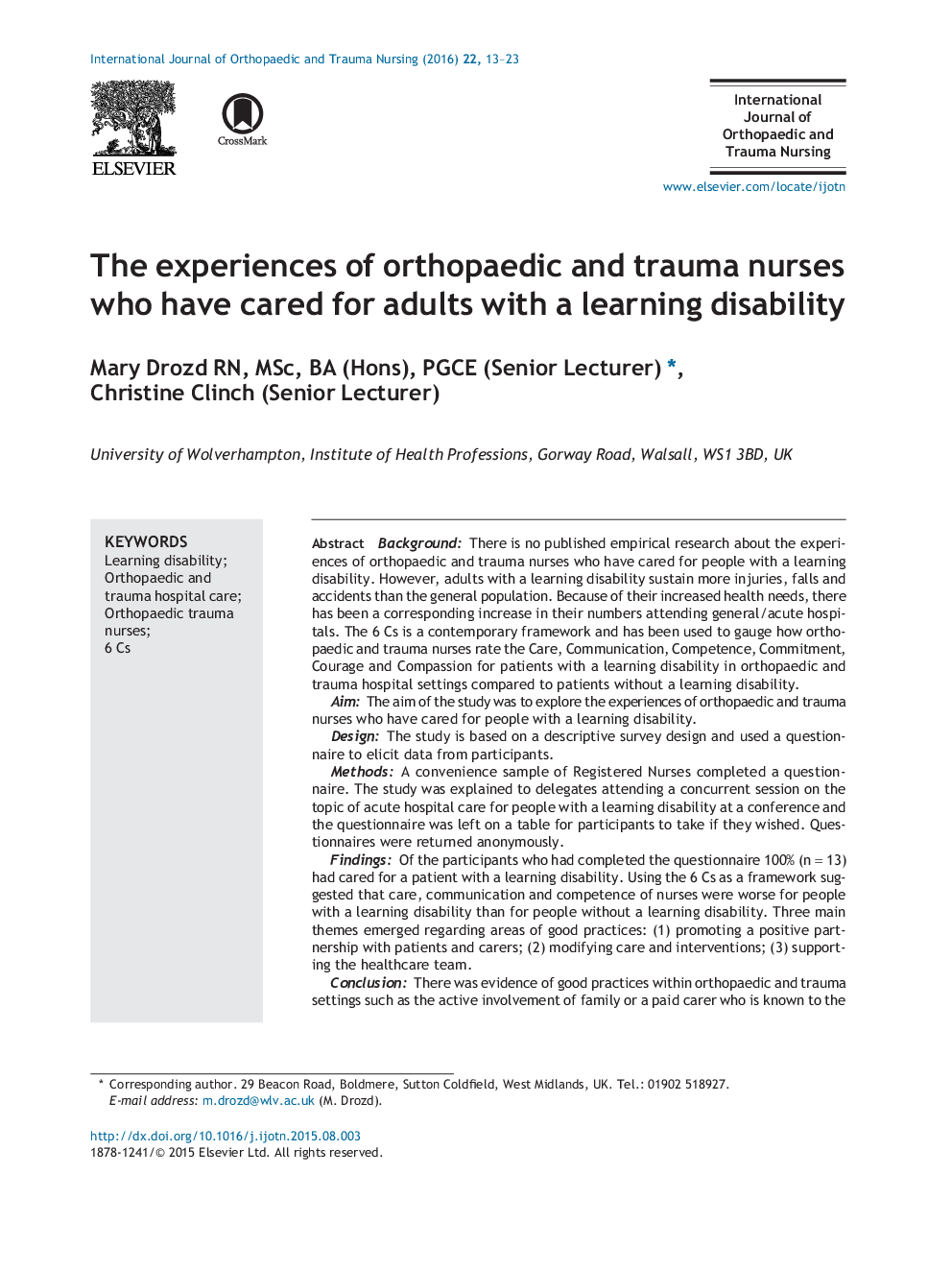| Article ID | Journal | Published Year | Pages | File Type |
|---|---|---|---|---|
| 2655909 | International Journal of Orthopaedic and Trauma Nursing | 2016 | 11 Pages |
BackgroundThere is no published empirical research about the experiences of orthopaedic and trauma nurses who have cared for people with a learning disability. However, adults with a learning disability sustain more injuries, falls and accidents than the general population. Because of their increased health needs, there has been a corresponding increase in their numbers attending general/acute hospitals. The 6 Cs is a contemporary framework and has been used to gauge how orthopaedic and trauma nurses rate the Care, Communication, Competence, Commitment, Courage and Compassion for patients with a learning disability in orthopaedic and trauma hospital settings compared to patients without a learning disability.AimThe aim of the study was to explore the experiences of orthopaedic and trauma nurses who have cared for people with a learning disability.DesignThe study is based on a descriptive survey design and used a questionnaire to elicit data from participants.MethodsA convenience sample of Registered Nurses completed a questionnaire. The study was explained to delegates attending a concurrent session on the topic of acute hospital care for people with a learning disability at a conference and the questionnaire was left on a table for participants to take if they wished. Questionnaires were returned anonymously.FindingsOf the participants who had completed the questionnaire 100% (n = 13) had cared for a patient with a learning disability. Using the 6 Cs as a framework suggested that care, communication and competence of nurses were worse for people with a learning disability than for people without a learning disability. Three main themes emerged regarding areas of good practices: (1) promoting a positive partnership with patients and carers; (2) modifying care and interventions; (3) supporting the healthcare team.ConclusionThere was evidence of good practices within orthopaedic and trauma settings such as the active involvement of family or a paid carer who is known to thepatient and the modification of care and interventions along with specialist advice and support from the Acute Liaison Learning Disability Nurse. There were areas of concern such as the lack of use of Hospital Passports and the inconsistent implementation of reasonable and achievable adjustments. It is unknown if the care for patients with a learning disability is adequate. However, the themes that have emerged accord with the key domains in ‘A competency framework for orthopaedic and trauma practitioners’ (Royal College of Nursing 2012a, 2012b) and therefore could be considered for inclusion in future orthopaedic and trauma competencies to enable sharing of best practices.
